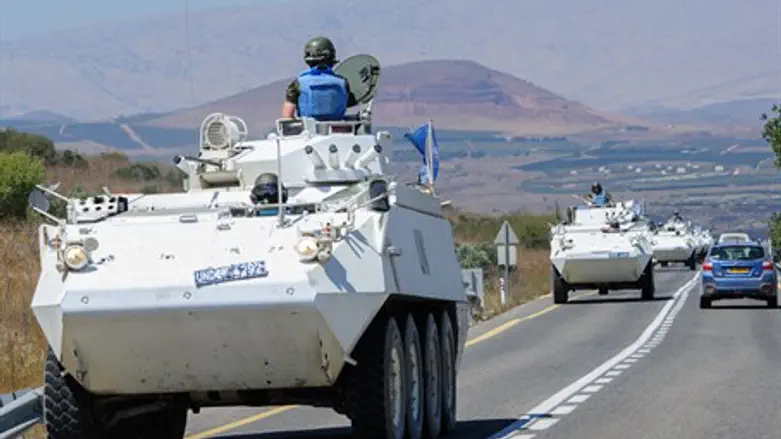
Ireland may not replace its 130-person rapid response force in the Golan Heights, where 44 peacekeepers from Fiji are being held by rebels, Ireland’s Defense Minister said on Monday, according to Reuters.
According to the minister, Simon Coveney, Ireland would like the United Nations to review its mandate for its forces there.
Ireland's contingent, which is the most heavily armed element of the 1,200 strong multinational UN mission, was due to be replaced by new Irish troops next month, but Ireland is to freeze the rotation, Coveney said.
"I have made it very clear, that if the UN wants Ireland to continue to support this mission...then we need a full review and we have to get assurances about how the mission will change to adapt to the new realities," he told Irish broadcaster RTE.
Until the issue is addressed, Ireland is "not going to send any more troops to that mission," Coveney made clear.
He played down the possibility of pulling the troops out without adequate replacements. "Ireland is still committed to this mission, I want to stress that," he said.
Tensions have been high on the Syrian side of the Golan Heights lately, as fighting in the area intensifies between rebels and the Syrian army.
On Saturday, more than 70 Filipino peacekeepers escaped from two areas in the Golan Heights that came under attack by Syrian rebels.
Over the past year, the UNDOF force has had its peacekeepers seized by armed groups, its observation posts attacked and looted, and its freedom of movement curtailed.
Meanwhile, as fighting intensifies between Syrian army troops and Islamist rebels, the IDF has increased its presence on the Golan Heights. Security officials fear that the fighting could “spill over” the Israeli border.
A senior Israeli security official said that the IDF had recently changed its conception of defense on the Golan. A group of highly trained and experienced soldiers who know the terrain well are now on duty at all times, constituting a forward force ready to deal with trouble as it develops.
The fighting heated up on the Syrian side of the border on Monday, with the sounds of battle distinctly heard in Israel. The heaviest fighting is in the area of the city of Quneitra, just over the border.
From what they can tell, IDF officials say that the casualty rate was very high in the Syrian Golan, with victims on both sides of the battle. According to reports, the Syrian Army's regional commander in the Golan was among those killed in battle.
The IDF is continuing to examine the remains of a UAV shot down over the Golan Sunday. The Israeli Air Force downed the unmanned drone over the Golan Heights as it attempted to enter Israeli airspace from Syria. Forces fired a surface-to-air Patriot missile at the drone, which came from the area of Quneitra.
According to security sources, the drone was made in Iran. Israeli officials are examining what the model for the drone was – especially if it was based on American models, specifically the US drone that was reportedly downed over Iran last year.